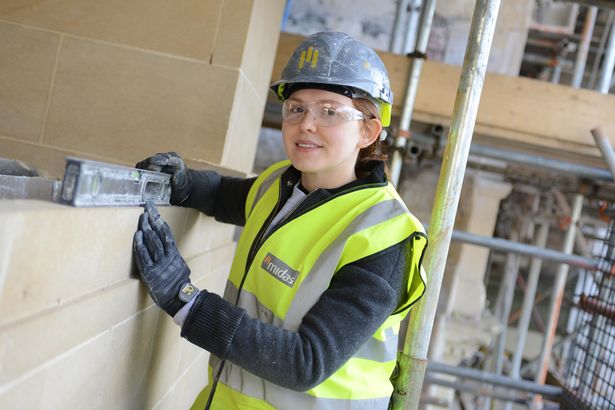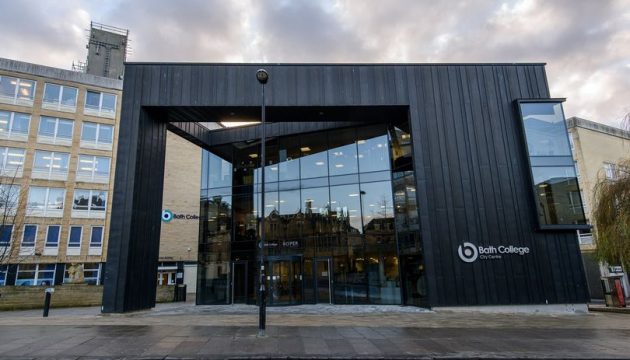An apprenticeship is a real job with real pay, combining all the benefits of a regular position with worthwhile training.
You work towards a recognised qualification while gaining essential on-the-job skills and earning a real wage.
Apprenticeships give you a direct path into employment and allow you to start your career straight away, giving you the combination of work experience and qualifications that employers are looking for.
Apprenticeships often suit students who have a clear idea of their career path and who no longer want to study full-time in a classroom environment.
Anyone living in England, over 16 years old and not in full-time education, can be an apprentice.
The minimum wage for an apprentice is £3.50 an hour plus travel expenses, although many employers pay more than this, with the average weekly wage being £170 per week. You will also receive the same benefits as other employees, including paid holidays and pension benefits.
How do they work?
Course Duration and work hours
Apprenticeships take between one and four years depending on which level you take
Apprentices should be contracted 30 hours per week and a maximum of 40 hours per week (for under 18s)
For intermediate and advanced apprenticeships you will typically spend 4 days in the workplace and 1 day in college. This may vary for higher apprenticeships depending on the job type and employer
Earnings
The minimum wage for 16-18 year old apprentices is currently £3.50 per hour plus travel expenses, although many pay more than this with a national average wage of £170 per week. After the first 12 months, apprentices will earn their age related minimum wage.

The same applies if you’re 19 and over and in the first year of your apprenticeship, after that you are entitled to the National Minimum Wage. However, many employers pay more than this.
Some Higher apprenticeships pay up to £500 per week.
You may also get additional money for essential books, clothing or equipment, or to help you with a disability
Qualifications
You will gain a nationally recognised qualification such as a National Vocational Qualification (NVQ)
Levels
Apprenticeships are taught at 3 levels – Intermediate, Advanced and Higher.
Help and support
Your employer or training provider will make sure you have a mentor. Their job is to ensure that your training fits your personal requirements, offers the skills needed for the job and satisfies national standards. They will also be there to help you through any difficult times.
You will also receive support from your college assessor who will work with you throughout the period of your apprenticeship to ensure that meet the requirements of the course.
Eligibility
Age is no barrier – Apprenticeships are open to all age groups (above 16yrs) whether you are just leaving school, have been working for years or are seeking to start a new career.
If you have a degree, you may need to fund the apprenticeship. Anyone over the age of 19 can apply for an Advanced Learner Loan, which would cover the cost of your apprenticeship.
What’s in it for you?
- A salary, plus other workplace benefits such as paid holiday
- A nationally recognised qualification
- Practical skills and workplace experience
- They make you 15% more employable according to employers
- On average apprentices could earn over £100,000 more in their lifetime than others
- You can collect UCAS points (on some Apprenticeships), go on to higher education at college or university, or work towards promotion
Apprenticeships show an ability to learn and a desire to develop professionally. - Intermediate Level Apprenticeships – are equivalent to five GCSE passes
Advanced Level Apprenticeships – are equivalent to two A level passes - Higher Level Apprenticeships – can lead to Level 4 and above or a foundation degree
- As an apprentice, you will receive the same benefits as other employees such as pension contributions, subsidised canteen, leisure facilities and holidays.
Apprentices can receive discounts from over 120 high street and online retailers with the NUS Apprentice extra card.
Where could an apprenticeship take you?

Apprenticeships can be demanding but they are very rewarding. Because Apprenticeships train you in the skills employers want, they give you choices in your career. When you’ve finished you can carry on working, maybe get promoted or go on to higher education in a college or university.
You’ll get a package of qualifications when you finish your Apprenticeship which will be recognised by any employer, anywhere in the country. That means you can change jobs and take your skills and qualifications with you. Your performance and knowledge are assessed on the job as you reach different levels. These assessments count towards your final qualification.
Qualifications
Almost every apprenticeship includes an NVQ and most of the apprenticeships at Bath College include an NVQ at Level 2:
NVQ Equivalent qualification
- Level 1 GCSEs at grades D-G
- Level 2 GCSEs at grades A-C
- Level 3 2 A levels / 1 vocational A level
- Level 4/5 HNC, HND and degree level
you will complete Functional Skills in Maths and English for all apprenticeship and in some cases also in IT:
Functional Skills Equivalent qualification
- Level 1 GCSEs at grades D-G
- Level 2 GCSEs at grades A-C
- Animal Care
- Business
- Construction and Building Services
- Childcare
- Engineering and Motor Vehicle
- Landbased
- Service Industries
- Teaching
- Bath College has a long history of running apprenticeship courses to a high standard and it has great relationships with many large employers in the South West.
- Bath College was the 2016 Apprenticeship Training Provider of the Year for Bath and Bristol – the third time in 4 years it won the award
- Bath is above the national average for apprenticeship achievement rates
- It is currently the largest provider of apprenticeships in B&NES
Over the last year, the college’s apprenticeship team has increased its provision, working with over 60 companies to offer apprenticeship programmes in nine new business areas.
Depending on the apprenticeship you choose, you may also study for a Technical Certificate which will give you further knowledge and understanding of your job. This might be a BTEC National Diploma or a City & Guilds Progression Award these vary greatly depending on your chosen apprenticeship and not every apprenticeship includes one.
Work Experience
In the current workplace employers really value industry experience and with an apprenticeship you get that experience while you are learning, which means you can move forward in your career with a wealth of knowledge about the working environment. This can really help when it comes to picking out your next step in your career, doing job applications and having interviews.
References
Good references are also really valuable when it comes to finding a job. If you work well during your apprenticeship you will be able to ask your manager for a reference when you leave, which will give an excellent impression to future employers who want to know what you are like and about your reliability and work ethic.
Apprenticeships at Bath College include programmes in:
These programmes are designed for young people who have either found an employer who will take on an apprentice, or for those looking to find an employer.
Why become an apprentice through Bath College?
To learn more about apprenticeships at Bath College, visit https://www.bathcollege.ac.uk/study-with-us/apprenticeships


